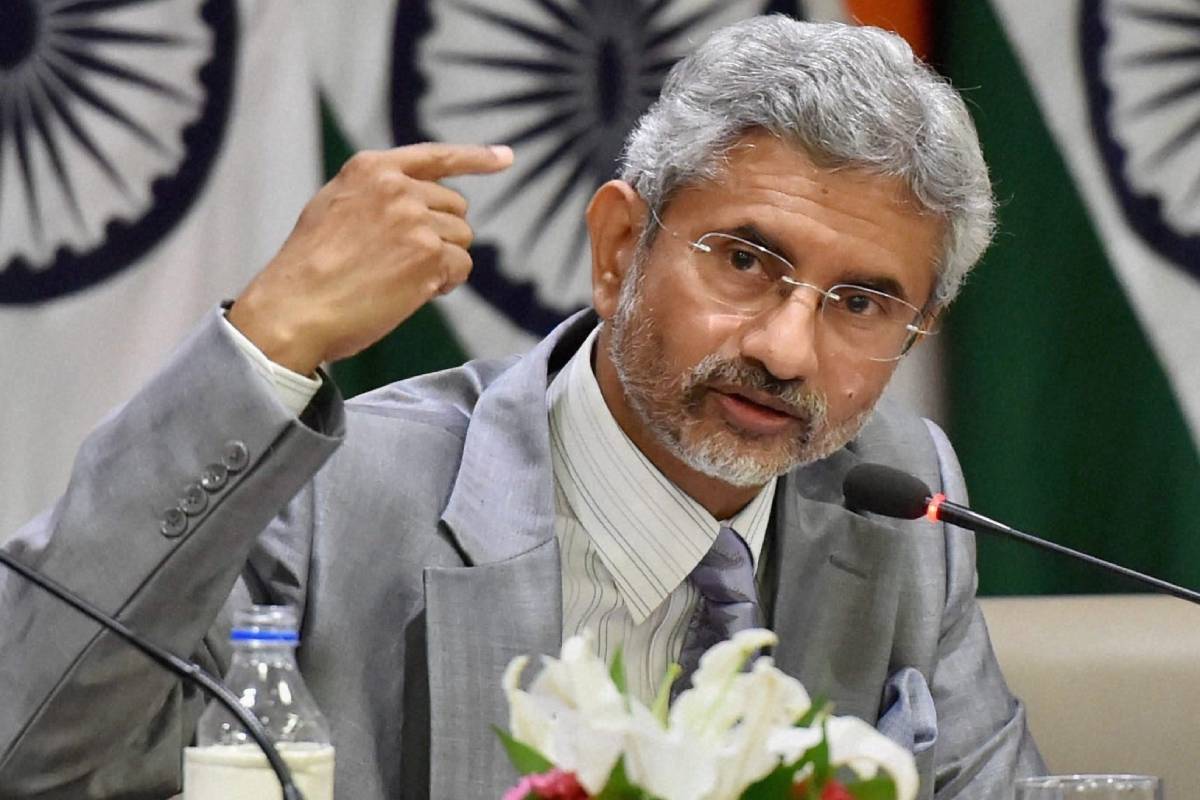Jaishankar to attend G20 foreign ministers’ meeting in S Africa
External Affairs Minister S Jaishankar will visit South Africa to participate in the G20 Foreign Ministers' Meeting from February 20-21.
The foreign minister pointed out that the EU is one of India’s largest and most important trade partners.

[Photo: File Photo]
Underlining that the India-EU Free Trade Agreement (FTA) would be a game-changer for the bilateral relationship, External affairs Minister S Jaishankar on Tuesday said New Delhi was looking forward to a mutually beneficial, mutually advantageous conclusion to the negotiation process on the pact within a reasonably short planned timeline.
”Europe and India can strengthen each other’s strategic autonomy by reducing dependencies; cooperating on critical technologies; and ensuring supply-chain restructuring. The India-EU FTA is, therefore, our very important goal,” he said while addressing the inaugural session of the CII India-Europe Business & Sustainability Conclave here.
Advertisement
He noted that India and the EU believe in a multi-polar global order, share a commitment to promoting effective multilateralism and were increasingly considerate of each other’s geopolitical, economic, strategic and security concerns.
Advertisement
The EU, he pointed out, was one of India’s largest and most important trade partners. ”Our bilateral trade was in excess of $115 billion in the FY 2021-22, which is the highest ever,” he added.
India’s new approach to trade agreements addressed issues of non-tariff and behind-the-border barriers, quality standards and related benchmarks. With like-minded partners, India has actually demonstrated in recent years a fast-track change in its FTA negotiation processes. FTAs- with the UAE and Australia- were actually concluded in a record time, Jaishankar said.
He was of the view that India’s large and growing middle-class population made it obviously a preferred investment destination as well as a lucrative market for India’s trade partners. India was expected to be the only major economy to keep growing at well above 6 per cent per annum in the foreseeable future, and thus would remain one of the major growth engines of the world.
Speaking about digital transformation, Jaishankar noted that 41 per cent of the world’s transactions actually happened in India. ”Our highly developed tech sector and an increasing pool of quality skilled human power in the software services sector are obviously a given. Newer technologies like additive manufacturing, high-performance computing and AI are increasingly the emerging focus. We are also putting together an indigenous chip-making ecosystem,” he added.
India’s development through the Digital Model was affordable, transparent, scalable, socially transformative, and predominantly open-sourced. This model could be implemented in other countries and be integral to India’s development partnership and capacity-building cooperation with the rest of the world, especially the Global South, he said.
The Indian minister said that in the last 9 years, Prime Minister Narendra Modi has undertaken several structural economic reforms, some of which were clearly politically counterintuitive. Nudging the informal economy to the organised sector, cleansing the financial system, rationalising taxation, incentivising production, doubling down on infrastructure and logistics, digitising the government’s interface with its citizens and ushering in an ambitious energy transition, each one of these was part of the policy mix which was today paying off.
”We want our friends in Europe to appreciate that this momentum, and its compounding strength, will take us towards becoming a developed society by 2047, and along with that will grow the accompanying business opportunities. India’s economic comeback and credentials are matched by our geopolitical weight, deriving from a strategic location in the Indo-Pacific region and increasing defence and first responder capability,” he said.
Advertisement